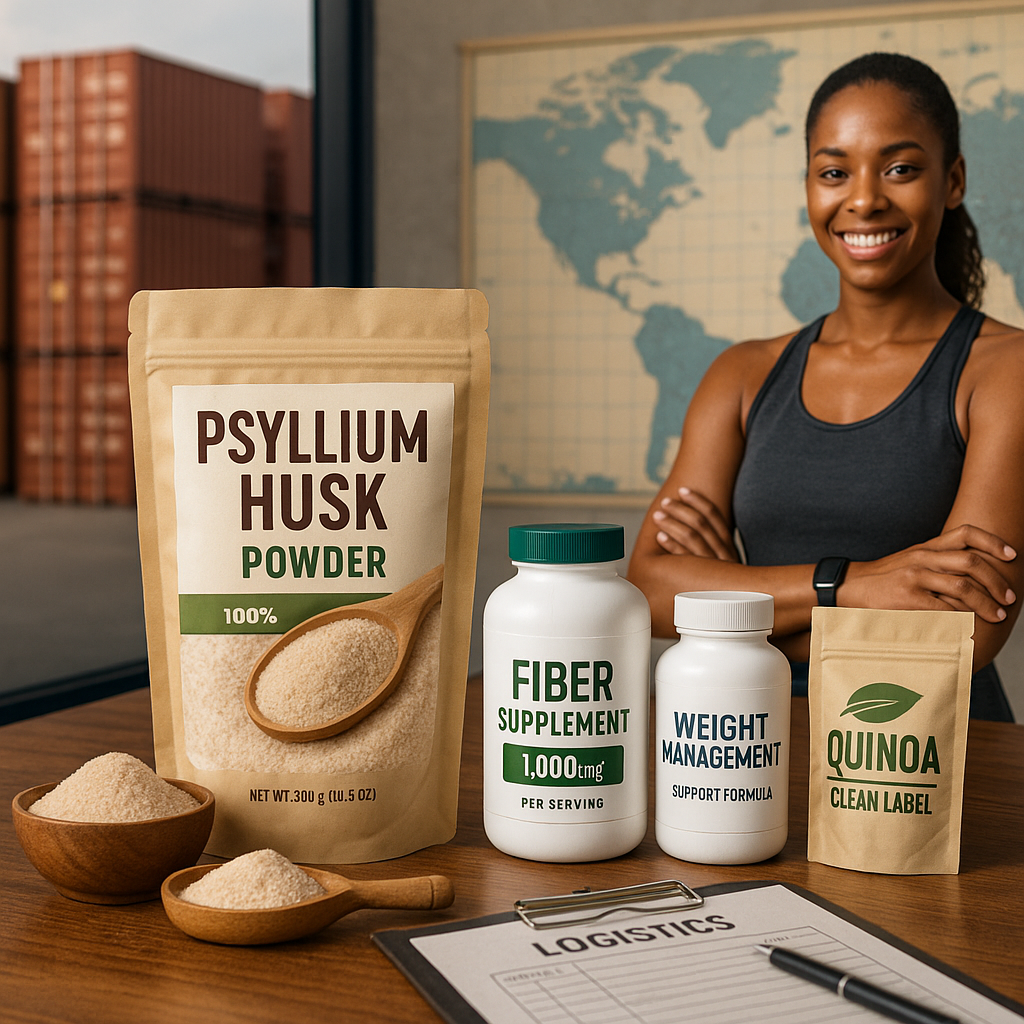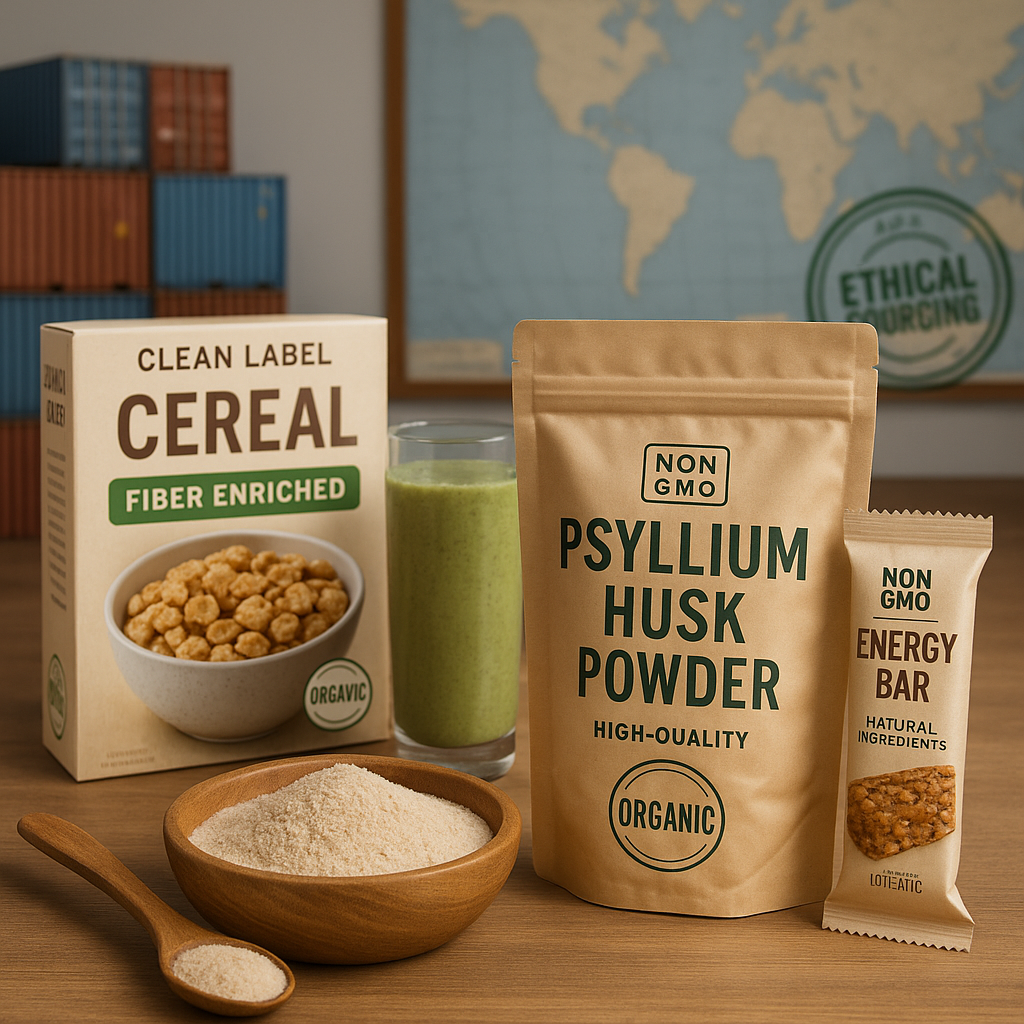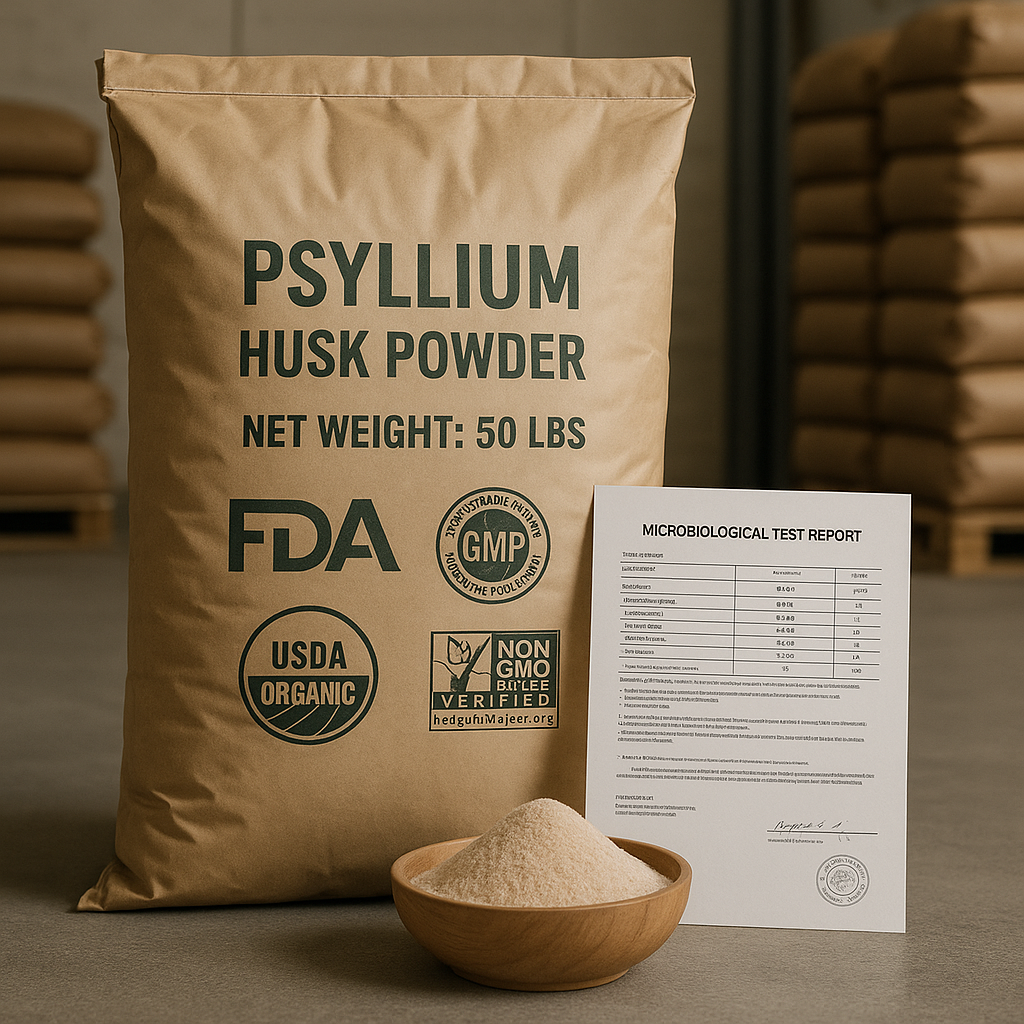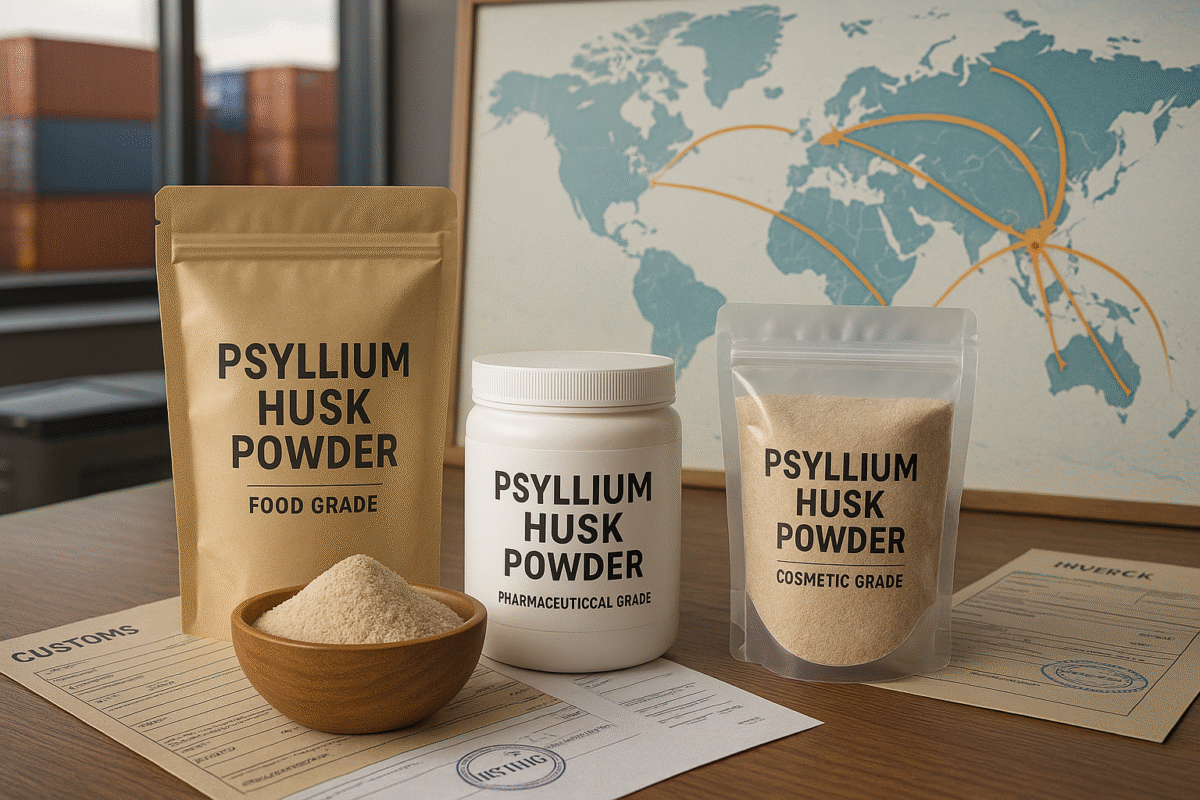Table of Contents
Why is Psyllium Husk Powder a High-Margin Opportunity for Global Distributors?
Psyllium husk powder represents a high-margin opportunity for global distributors due to its widespread use across several high-demand industries, including functional foods, dietary supplements, and personal care products. The growing health-conscious consumer base, combined with the rising popularity of gluten-free, keto, and vegan diets, makes psyllium husk an attractive ingredient for manufacturers. Distributors can benefit from the premium prices that psyllium products command, especially when sourcing from quality-conscious manufacturers who comply with international standards.
Moreover, psyllium husk powder is versatile and offers multiple applications. It’s used in everything from fiber supplements and weight management products to clean-label food formulations and eco-friendly packaging.

How Are Indian Psyllium Manufacturers Meeting Global Regulatory Demands?
- Quality Control: Indian psyllium producers are adhering to quality control standards, including ISO 9001 and GMP certifications, ensuring their products meet the highest safety and quality benchmarks. Regular testing for contaminants, allergens, and microbial safety is a routine part of the manufacturing process.
- Compliance with Food Safety Standards: Indian psyllium producers are also complying with global food safety certifications like FDA (USA) and EFSA (Europe), ensuring that their psyllium products are safe for consumption in the food and pharmaceutical sectors.
- Sustainable Practices: Many manufacturers are increasingly focusing on organic and sustainable farming practices, aligning with global demand for eco-friendly products. Certifications like USDA Organic and EU Organic are becoming more common, meeting the rising consumer demand for clean-label products.
What Are the Top 10 Challenges Faced by Psyllium Importers—and How Can They Solve Them?
- Quality Control Issues: Ensuring consistent product quality is a primary challenge. Solution: Work with certified suppliers and establish strong quality control measures.
- Regulatory Compliance: Navigating the complex regulatory requirements in different countries. Solution: Ensure suppliers are compliant with key standards such as FDA, EFSA, and Halal
- Supply Chain Disruptions: Global supply chain issues can affect delivery timelines. Solution: Build strong relationships with multiple suppliers and use buffer stock strategies.
- High Shipping Costs: Importing bulk quantities of psyllium can result in expensive logistics. Solution: Optimize shipping routes and consider shipping in bulk to reduce per-unit costs.
- Import Tariffs: Trade tariffs can add extra costs to imports. Solution: Understand tariff structures and explore free trade agreements to minimize import duties.
- Sourcing Consistency: Inconsistent supply due to weather or crop conditions. Solution: Diversify supply sources or work with larger producers for more stable supply chains.
- Packaging Issues: Psyllium husk powder requires proper packaging to maintain shelf life and avoid contamination. Solution: Ensure that suppliers use quality, moisture-proof, and air-tight packaging materials.
- Product Authentication: Ensuring the psyllium is authentic and not adulterated. Solution: Request batch traceability and lab testing certificates from suppliers.
- Currency Fluctuations: Exchange rate volatility can impact costs. Solution: Lock in prices with fixed-rate contracts or use hedging options to manage currency risk.
- Demand Fluctuations: Variability in market demand can make it difficult to predict orders. Solution: Maintain a flexible procurement model that allows for quick adjustments based on demand forecasts.
How Is the Rising Demand for Psyllium in Clean-Label Food Products Impacting Exporters?
The clean-label food movement is gaining significant momentum, and psyllium husk powder is emerging as a key ingredient in these formulations. Consumers are increasingly seeking foods that are natural, simple, and free from artificial additives or preservatives. This growing trend is creating new opportunities for exporters of psyllium husk powder, as it fits perfectly into clean-label products due to its natural origins and health benefits.

- Demand for Transparency: Clean-label consumers prioritize transparency, and psyllium husk powder meets this demand due to its simple, unprocessed nature.
- Functional Food Demand: As demand rises for fiber-enriched functional foods like breakfast cereals, energy bars, and smoothies, psyllium plays a crucial role in helping food brands meet the rising need for high-quality fiber.
Is Psyllium Husk Powder an Unsaturated Market in Latin America?
- Health Awareness: As health awareness increases, Latin American consumers are looking for natural, plant-based solutions to improve their digestion, manage weight, and boost fiber intake.
- Regulatory Barriers: Some countries in Latin America may have regulatory barriers that make it more difficult for psyllium suppliers to enter the market. However, as consumer demand for functional foods and natural ingredients rises, there is a significant opportunity for expansion.
What Are the Expectations of Psyllium Buyers in the USA for Bulk Psyllium Husk Exports in 2025?

- Consistency and Quality: Buyers expect consistent product quality, with regular testing for heavy metals, contaminants, and microbiological safety.
- Certifications and Compliance: The FDA and GMP certifications will be essential for psyllium exporters to meet the quality standards expected by American buyers.
- Packaging: Bulk packaging should meet US food safety standards, ensuring the psyllium is delivered in secure, moisture-resistant packaging.
- Sustainability: As the demand for clean-label products continues, buyers will expect psyllium to be sourced sustainably, with a preference for organic and non-GMO certification.
How Can You Build Long-Term Psyllium Supply Partnerships in Europe and the Middle East?
- Comply with Regional Regulations: Meeting the EFSA guidelines in Europe and ensuring Halal certification for Middle Eastern countries is crucial for maintaining long-term relationships with distributors.
- Offer Customization: Providing customized psyllium husk blends for different functional food applications, such as gluten-free or keto diets, helps build lasting partnerships.
- Foster Transparency and Reliability: Clear communication, reliable delivery schedules, and transparent product sourcing are essential for building trust with European and Middle Eastern buyers.
- Sustainability Commitment: Both regions place a high value on sustainability and eco-friendly practices. Psyllium exporters should focus on providing organic, fair-trade, and eco-friendly options to strengthen partnerships.



